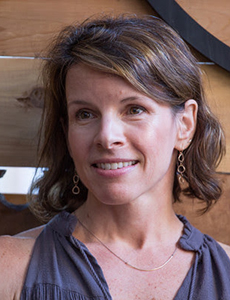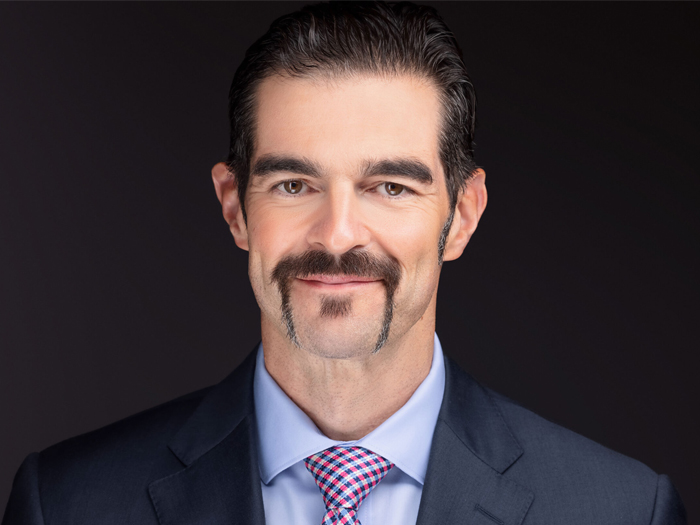COVID’s Unsettling Impact on the Future of Work and What Perils and Potential Upsides Remain

The pandemic has drastically reshaped the workforce, with lasting effects that can benefit both employees and employers. However, both parties need to understand how to navigate this new environment to reap its advantages.
During “Risk and the Future of Work: How to Thrive Amid Uncertainty,” an hour-long webinar hosted by FlexJobs on April 8, speakers took a deep dive into the changing nature of work. The discussion addressed how personal approaches to risk shape workers’ job choices and career trajectories, the skills that matter most in remote work, and how employers can better attract and retain talent in the post-pandemic environment.
The speakers included Sara Sutton, CEO and founder of FlexJobs and Remote.co; Michele Wucker, CEO of Gray Rhino & Company; and Nicole Vasquez, co-founder and chief community officer of DeskPass.
R&I sat down with all three to discuss what the future of work looks like and what employers need to know.
Risk & Insurance: How has the pandemic altered the pool of talent in the U.S.? What occupations have been most affected by the increased reliance on technology/digital commerce/automation?
Michele Wucker: The pandemic has had an outsized impact on the pool of women in the workforce — both those in the care economy who lost work or found themselves faced with impossible risk decisions and the professional women who lost their access to childcare.
Caregiving is one of those tasks that is very hard to automate, but we don’t pay for it in keeping with its true value.
If you look at the low pay and the way many women are expected to provide child or elder care for free, it’s clear that we need a new model for supporting parents — which means men too — and caregivers.
But it’s also been a boon for knowledge workers who now realize that they don’t have to waste hours and hours every week on commuting and who can now spend less time on planes.
When things open back up, we’ll still need in-person meetings, but people will be able to be much more selective, and employers will have to recognize that and respond.
Nicole Vasquez: The pandemic was a global work-from-home experiment. Industries like banking and finance that typically did not have remote workers were forced to allow people to work from home and very quickly had to adjust their systems.
They are now realizing that it can work and that many employees prefer at least one work-from-home option per week. I think many industries that never thought they’d allow remote work will start to offer some kind of flexibility going forward.
R&I: How has the shift to remote work benefitted or challenged hiring and talent retention for employers?
Sara Sutton: On the employer side, FlexJobs experienced a 76% increase in fully remote jobs in 2020 over 2019, so despite the widespread job losses, especially during the first months of the pandemic, there are actually more employers hiring for remote jobs.
Because of our long history in the remote work space, we know that while the pandemic has been a challenging time for employers for a variety of reasons, over the long-term, the benefits of remote work largely outweigh the challenges.
Remote work broadens and diversifies talent pools and lowers barriers to hiring the best possible person. That’s why 23 major companies are already committing to long-term remote arrangements.
I believe the companies that refuse to do this will ultimately suffer from a talent attraction and retention perspective. The time for more permanent remote work has finally come.
R&I: How has the pandemic changed what job seekers will look for in an employer?
SS: The coronavirus pandemic has permanently reshaped the workplace and how, when and where people work.
Business models have been forever disrupted with the realization that remote work is smart, strategic and sustainable for companies to embrace, improving the bottom line while providing benefits to the overall workforce.
More specifically, FlexJobs surveyed over 4,000 professionals working remotely during the pandemic [and] found that 65% of respondents want to become full-time remote employees post-pandemic, while 31% would prefer a hybrid work arrangement with some of the days at home and some of the days in the office.
Sixty-one percent of workers review remote work more positively and 50% also say their employer views remote work favorably now.
MW: Job seekers will be looking for employers that will have their backs in crises like this one.
When it comes to health, it means not unnecessarily exposing them to risk of infection — and when there is a health risk, to make sure that people have the protective equipment they need.
The pandemic also has made people more aware of what’s important to them and that their choice of a career and employer can quite literally be a life-or-death decision.
So, we will see more people looking for jobs at companies that are consistent with their values and that will nurture their skills. We’ve already been seeing this trend among millennials and Gen-Z, but the sense of mortality will lead older generations to make changes, too.
NV: In a recent study by PWC, 87% of employees say the office is important for collaborating with team members and building relationships. So although remote workers want location flexibility, they also want opportunities to work with their teammates. I believe that companies will need to provide options to do so in-person or have thoughtful virtual gathering events for employees.
Company culture will be a big draw for remote job seekers, because although they may be working alone, they do want to feel connected to the company and their teammates.
R&I: What are some of the different approaches to risk and uncertainty you see among job seekers? How do personal approaches to risk affect career trajectories during periods of uncertainty?
SS: Given the enormous amount of stress and uncertainty that we are all facing as a result of the coronavirus, offering employees more control over their workday can have a major impact on overall mental health and wellness right now.
Allowing employees to work flexibly can significantly reduce the conflict that we all experience between our personal and professional lives and better equip everyone, regardless of their career level, to take better care of their mental, emotional and physical needs.
This is one of the biggest reasons we are seeing more job seekers turn to flexible and remote jobs — not just during the pandemic but as a long-term shift.
MW: One of the silver linings of the pandemic is the way it has helped people to focus on their priorities and pursue them.
We may not think of it that way, but it’s a good risk mitigation strategy for personal or business choices. When you realize that you and your loved ones may have less time on this planet than you thought, it changes your priorities.
The pandemic has prompted people to seek clarity on what’s most important to them at work and at home and how those parts of their lives fit together. If work and life no longer align, they are making changes in their careers, where they live and their habits.
I just heard today from yet another friend who is moving to a different city in part because of the pandemic. As it becomes safer to be out and about, more and more people are going to be making similar changes.
The old way of thinking was that people had to risk relationships and personal priorities if they wanted to succeed in their career, but that is changing. High performing employees need a healthy set of relationships and pursuits outside of the workplace to succeed — whether family, close friends, volunteering, sports or other activities that nourish their spirits and make them more productive when they are in the office.
R&I: What skills will be more in-demand in the post-pandemic world?
SS: In terms of “soft” skills, the most valuable for remote workers include self-discipline, focus, organization and time management. Also, they must be able to set boundaries around their work environment.
In addition, they need to be tech-savvy, open to new tools, and comfortable fixing minor technical problems.
In terms of specific remote jobs that will be most in-demand, although companies have expanded their views on what types of roles can be done remotely, these career fields generally post the most remote jobs: IT, health care, project management, sales, accounting and finance, customer service and marketing.
And our job posting data for 2020 showed that these career areas saw remote work job listings grow more than 25% from the beginning to the end of 2020: marketing, administrative, HR and recruiting, accounting and finance, graphic design, customer service, writing, mortgage and real estate, internet and e-commerce, and project management.
MW: The ability to thrive in uncertainty is and will continue to be at a premium, particularly for workers who freelance or are in flexible positions.
Even before the pandemic started, researchers were pointing to change management skills as being crucial, and the past year has made that even more true.
As we have seen during the pandemic, the most successful companies, employees and entrepreneurs have been the most flexible ones and the ones who have focused on how they can help others.
Also, because the pandemic has accelerated the rise of the digital economy, people will need to be digitally fluent and also strong in the kinds of skills that humans have but which elude machines: strategy, teamwork, empathy, innovation and creativity.
All of these are tied to comfort taking risks and navigating uncertainty.
Yes, some machines are now creating “art” or “writing” fiction, but authentic human experience will continue to surpass machines even once machines get better at what passes for creativity. &













